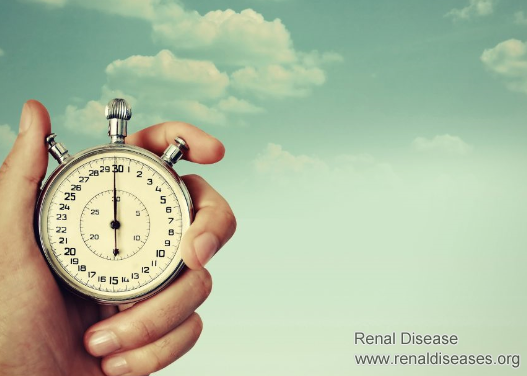Whatsapp: +8615512139310
- Email us:

"Doctor, how bad is my illness? How long will it take me to get uremia?"
This is a question that many people who have just been diagnosed with kidney disease ask.
Two or three years?
Twenty or thirty years?
In fact, doctors can not tell an exact number. The time from diagnosis to uremia depends on the types of kidney disease, the time of diagnosis, the standardization of treatment, and the strict degree of self-management.
Diabetic Nephropathy
In patients with diabetes for 10 to 20 years, half of them will develop kidney damage. In patients with diabetes for more than 20 years, almost everyone will develop Diabetic Nephropathy.
It takes about 15 years to progress from stage 1 diabetic nephropathy to uremia, but when people feel uncomfortable, it is already stage 4 or 5.
At this stage, it is too late to maintain renal function, so the effect is usually not ideal, and hte time to uremia also accelerates.
Patients with IgA nephropathy can develop uremia in several years or a dozen years if they have prolonged proteinuria >1g/d or even 3g/d or more.
Patients with proteinuria under 1g/d are less likely to develop uremia.
Membranous Nephropathy
It occurs mostly in the elderly population, and their proteinuria is often very high.
After effective treatment, if the proteinuria is significantly relieved or partially relieved (more than 50%), even if the urine protein level is still relatively high, the likelihood of progressing to uremia is very small.
Polycystic kidney disease (PKD)
If cysts continue to increase, renal parenchyma will be compressed, resulting in renal dysfunction, ultimately leading to uremia.
ARPKD (Autosomal recessive polycystic kidney disease) occurs during babyhood. Although the disease progresses slowly, about 70% of the patients will enter the uremia period before the age of 25.
In ADPKD (Autosomal dominant polycystic kidney disease), it takes about 10 years from renal function impairment to uremia, but individual differences are large.
Lupus Nephritis
Systemic lupus erythematosus nephritis is less likely to progress to renal failure, but multiple relapses increase the risk of progression to renal failure.
Minimal Change Disease
It is commonly seen among children, and often manifested as Nephrotic Syndrome. With steroid and immunosuppressant, it can be treated well.
The progression of minimal change disease to uremia is less than 10%, and can be completely cured.
All kinds of kidney diseases may progress to renal failure at different times. However, if the patient has a good pathological type, he/she will not be actively treated and strictly self-management. No matter how good the pathological type, and how mild the condition, he/she may progress to renal failure soon.
To adjust your emotion, control blood pressure, blood sugar and uric acid, give up smoking and alcohol, and keep regular hours are helpful for you to avoid kidney failure.
For more information on kidney failure, please leave a message below or contact online doctor.